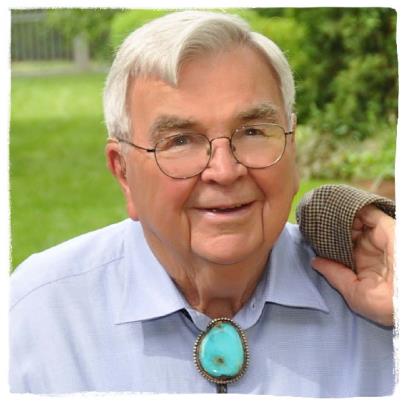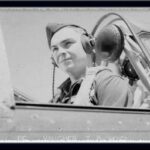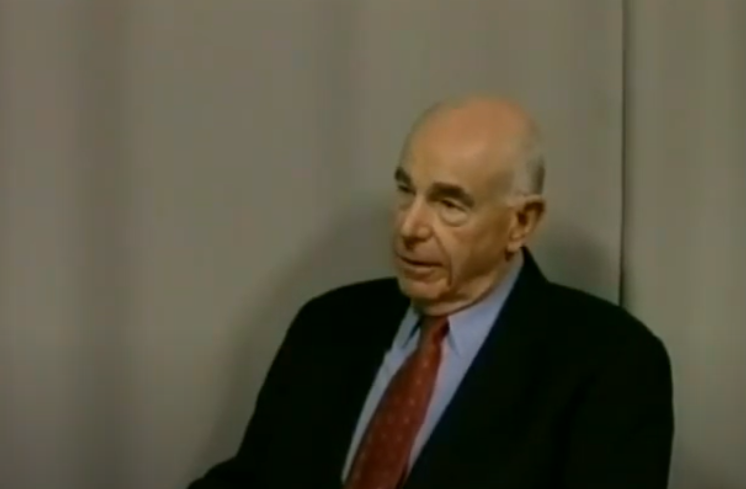The Commander of WW II’s Last Combat Mission’s Answer to Two of Life’s More Important Questions

In the movie City Slickers, Jack Palance plays Curly Washburn, a grizzled trail boss who takes a small group of dude ranch guests on a cattle run. Billy Crystal’s character is one of them. In a pivotal scene Curly asks Billy if he knows “what the secret of life is?” Which Curly, holding up a single finger, tells Billy is: “just one thing.”
We all want to know what that one thing is. But when Billy asked for him the answer, Curly replied “that is what you have to figure out.”
I still haven’t quite figured it out. But Thomas “Bob” Vaucher brought me meaningfully closer to doing so.
Bob began his journey in this world in 1918 in the town of Mission, Texas, and ended it yesterday, 102 years later, on February 7th, in his home in Bridgewater, New Jersey. In between, he was told war stories by veterans of the Confederacy, witnessed the first automobiles, and lived through the Great Depression, the American Century, the internet, the Spanish flu and this phase of the pandemic. Bob also helped save western civilization.
The youngest Lt. Colonel in what was then the U.S. Army Air Corps, Bob flew some 117 combat missions during WW II – many of them in the Pacific Theater against the Japanese. His last mission was leading a flight of 525 heavy bombers over the USS Missouri in Tokyo Bay as the peace treaty ending that war was signed. That was the final combat mission of WW II. You can see it still, on the History Channel and Youtube. https://www.youtube.com/watch?v=NRHpeAOo2p4.
It is worth pondering for a moment some of what that war actually meant. Bob did not see his wife or
[caption id="attachment_112578" align="alignright" width="150"] Lt. Col. Bob Vaucher.[/caption]
Lt. Col. Bob Vaucher.[/caption]
family for several years. He served in the primitive hinterlands of India and China, flew over the Himalayas (before GPS) more than 20 times, lost men who had placed their lives in his hands and knew others who, after being shot down, were tortured, starved and murdered by the Japanese. He also crash landed on Iwo Jima soon after it had been captured by the U.S. Marines at a cost of 7,000 dead and 20,000 wounded Americans. And Bob did all of this between the ages of 23 and 27.
But when he looked in the mirror, Bob did not see a warrior. He saw a man who wanted to go home and, when he got there, make the world a better place. Along with a group of other like-minded young men who talked about their hopes for a post-war world. Men who needed that idealism to get through the next day, looking in their own mirrors in their own tents at the edge of the world.
I do not know what those other men did upon their return. Over the next 75 years, Bob was instrumental in creating Bridgewater’s school system, police department, parks, zoning laws, and form of government – while helping found Raritan valley Community College.
In one of his two last fights Bob – then 100 years old - helped defeat a local politician whose re-election campaign had taken a very unfortunate turn. In the second one (at age 101), he and others built a coalition of residents, local and county officials, the D&R Greenway Land Trust, and Crossroads of the American Revolution to keep a promise Bob had made to a friend.
That friend was John Wemple. Together, they had worked out how to keep John’s 32 acres of undeveloped land intact by bequeathing it to a conservancy group and various Wemple relatives. But, under somewhat opaque circumstances the land was later sold to a developer who, in 2012, sought approvals to develop it. In violation of John’s Last Will. And his hopes.
Bob’s coalition ultimately raised $1.95 million of public and private funds to buy the land back from the developer. In recognition of its historical significance and his efforts, the Wemple tract is now named the “Vaucher Revolutionary Preserve at Steele Gap.”
In different ways, each of these accomplishments really mattered. But none of them answered Curly’s question. I never asked Bob for the answer. Instead, he showed it to me.
The late eighties of a person’s life, and beyond, are filled with hard realities. Yes, Bob was very fortunate to be blessed with physical health and mental acuity until the very end. But the cruel underbelly of living that long is that the world Bob knew, his contemporaries, and many of the people he had loved, were gone.
Yet our community continued seeking Bob’s counsel and valuing his opinions. How does a man who grew up before electrification command the respect, attention, and affection of a community in 2021?
By giving of himself. We cared about Bob because we knew Bob cared about us. Truly, that is the secret sauce to a better life. Not a new secret, though. This core value is embedded in most religions. But it is one thing to read words on a page, and another to witness the actions that they describe. He who has ears, let him hear. (New Testament, Matthew, 13:9).
Of course, Bob was not without flaws. Which makes Bob’s life all the more remarkable. He took the narrow gate that too few seek by rising above himself when it mattered.
In these last months, Bob was too ill to talk about current events. So what follows is from me.
By my lights, our national political leadership has demonstrated no interest in entering by the narrow gate, and is instead racing to a political bottom not seen in many decades – if ever – in this country. The unwillingness of too many Republicans to disavow an anti-fact, hollow world view, gives them the lead in that race. But the too many Democrats who seemingly analyze almost everything through a stretched prism of race and gender are not far behind.
If too many individual cells in the human body do not do their jobs, then the body dies. As does the body politic. That is not a concocted QAnon conspiracy. It is the undeniable reality of our time.
In response to that reality some have urged “unity.” And I am all for it. Let me ask you, however, to ponder a different word. That word is “we.” We are the problem. As well as the solution. Not Trump. Not Biden. We. You and me.
Which brings us to a second important question about our lives. Can we fix it?
Bob - having quietly decided in his own mind how he wanted to live, transformed what could have been an ordinary life into an extraordinary one by building it on the bedrock of personal integrity, principle, and authenticity.
So can you. So can we all.

In fact, I know someone who already did. Charles Leven (pictured, above) was not as active in local affairs as Bob. But he, too, served. Not in the American military, but in Canada’s, after running away from home to cross the border into Montreal when he was just 14 years old. Enlisting under the alias Charles Scott in 1941, he fought in France, slept for months in an open trench during one of Europe’s coldest winters, and sustained a near mortal shrapnel chest wound in the fight to liberate Holland from the Third Reich.
Like Bob, after Charles returned from the war he accomplished important things that helped others. He overcame a fatherless childhood to provide his children with the secure, safe upbringing he had never known, and then continued supporting them in every way he could. He helped other families by creating hundreds of jobs while climbing from abject poverty to the position of Senior Vice President at a major retailer. He rose from being a line volunteer at AARP to Chairman of the Board of that organization. And he loved his wife of 62 years, his family, and this country.
Charles died two days ago on February 6th at the age of 93.
These two men led different lives but made the same journey. Possessing a deeply set moral compass, they relied on certain core principles when hard calls had to be made. Not all the time. But often.
Leaving us with a third important question that we must now answer. Is that purposeful way of living too much to expect of ourselves? I would argue that it is actually the very least we can do for ourselves. And our own families.
We choose whether to enter by the narrow gate or continue tolerating the empty opportunists from both parties who claim the mantle of leadership but lack the character to lead. We choose whether to bring more oxygen into the room then we take out by infusing integrity, truth, tolerance, simple decency and basic logic into what we say, do, and support politically. We choose whether to assure our tomorrows by elevating ourselves today. Because by our actions we literally decide – every day - whether we, the people of the United States of America, are worth that effort.
In the span of less than forty-eight hours, Bob and Charles have passed from our world into the next. May their memory be a blessing and their lives an inspiration to you, as they have been to me. One of the privileges of my life was to be Bob’s friend. And to be Charles’ son.
[caption id="attachment_78831" align="alignnone" width="800"] Normandy Beach.[/caption]
Normandy Beach.[/caption]






Beautiful tribute to both your friend, Thomas “Bob” Vaucher and your father, Charles Leven. “ We cared about Bob because we knew Bob cared about us”. Simply, you get what you give. Both of these men gave genuine caring.. Therefore, they were respected, valued, and loved.